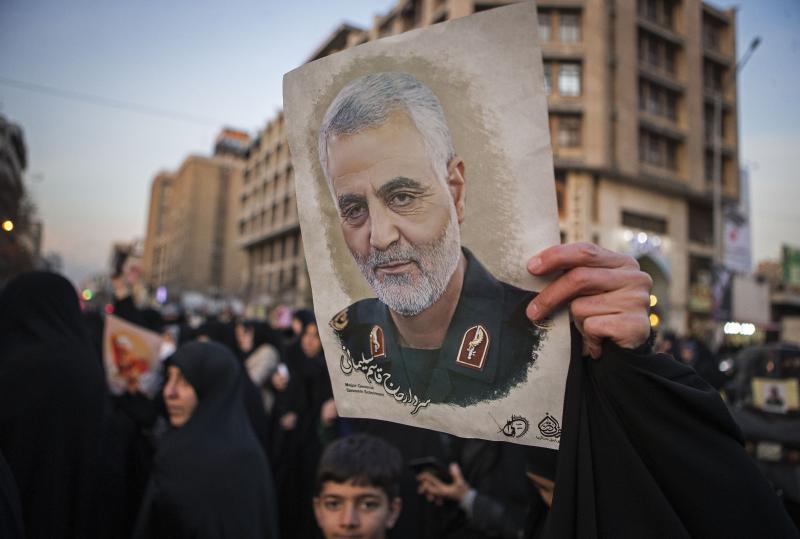The Middle East conundrum
- By George N. Tzogopoulos
 0 Comment(s)
0 Comment(s) Print
Print E-mail China.org.cn, January 16, 2020
E-mail China.org.cn, January 16, 2020

Understanding Middle East affairs is a particularly complex task. Sectarian and religious differences largely shape internal developments making conflicts and tensions a recurrent feature. Foreign interventions also complicate the situation further. In the 21st century, the U.S. war in Iraq destabilized the region rather than bringing democracy as the American administration had originally hoped. The military campaign also jeopardized U.S. assets in the Persian Gulf.
In his book "Does America Need a Foreign Policy?" written in 2001 prior to the Iraq War, Henry Kissinger warned about serious security risks. He predicted that the U.S. "will not be able to moderate fundamentalist Iran if it cannot handle a defeated Iraq, or if Tehran's leaders, looking across their border, see how easy and effective it is to defy the United States." Kissinger was right. Although the U.S. toppled the regime of Saddam Hussein, the subsequent political fallout was dramatic.
The current turmoil in the Middle East reflects the thinking of the former Secretary of State, and American-Iranian relations remain one of the most significant problems in the region. The recent killing of Iranian General Qasem Soleimani by the U.S. triggered an escalation which could have developed into a serious conflict. Most analysts suggest the Iranian response to the assassination was restrained and endeavored to appease concerns. The Iranian strategy of indirectly pushing U.S. troops away from the Middle East is evolving without the need to become entangled in a war.
For his part, President Donald Trump – despite his emphasis on targeting Iran since 2017 and especially after decertifying the deal on its nuclear program – has generally been working on withdrawing American soldiers from some international missions, for example in the case of Syria last September. To this end, he is keen on proposing new ideas that disenchant America's allies. "NATOME," the new acronym President Trump created for the NATO military alliance to deal with the Middle East, constitutes the most recent example. NATO member-states are not particularly excited about the concept.
Beyond Trump's political calculations, the reality is that the U.S. is becoming embroiled in a tough standoff against Iran while risking the loss of Iraq. Several American commentators have already warned Washington about losing the battle for influence in Iraq to Iran. This is partly happening in spite of the enormous sums of money that have been invested in Iraq since 2003. Washington has officially rebuffed Baghdad's request to begin discussions on pulling out troops, however, even talking about this possibility outlines a different climate for the American military presence.
From another perspective, a subsequent question is what the Soleimani assassination might mean for a potential revival of the Islamic State. Following the death of its leader Abu Bakr al-Baghdadi last October, there were still fears that the terrorist organization would continue to be active. The Islamic State has welcomed the death of Soleimani as the Iranian general had fought against it, and new chaos in Iraq will possibly lead to a resurgence of the terrorist group. American media is in fact filled with articles anticipating just such a scenario. Ironically, in a recent statement Trump said, "The destruction of ISIS is good for Iran, and we should work together on this and other shared priorities."
Obviously, a comprehensive analysis of current Middle East affairs should go beyond the escalation between America and Iran. The Russian factor cannot be excluded, with Moscow having proposed a new collective security concept for the Persian Gulf in summer of 2019 calling on collaboration between all stakeholders involved.
Middle East affairs still remain a conundrum, but new international players are becoming involved and acquiring the potential to have their say and gradually influence the situation.
George N. Tzogopoulos is a columnist with China.org.cn. For more information please visit:
http://www.ccgp-fushun.com/opinion/GeorgeNTzogopoulos.htm
Opinion articles reflect the views of their authors, not necessarily those of China.org.cn.
If you would like to contribute, please contact us at opinion@china.org.cn.





